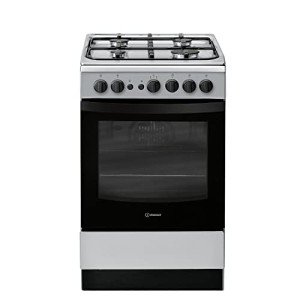14 Cartoons About Buy Gas Range To Brighten Your Day

The Comprehensive Guide to Buying a Gas Range: Key Considerations and Recommendations
When it pertains to kitchen home appliances, a gas range is an essential tool for numerous home cooks and professional chefs alike. Known for offering precise temperature controls and providing constant heat, a gas range can considerably enhance your cooking experience. In this short article, we will explore the various aspects to think about when buying a gas range, along with some recommendations and FAQs to assist guide your choice.
Why Choose a Gas Range?
There are numerous benefits to selecting a gas range over other types of cooking home appliances:
- Instant Heat: Gas ranges heat up quickly, allowing for immediate cooking.
- Temperature level Control: Chefs appreciate the higher control over temperature level modifications, making it simpler to attain the perfect sear or simmer.
- Economical: In many locations, natural gas is more affordable than electricity, leading to savings on cooking expenses.
- Broiling Capability: Many gas varies function effective broilers that can effectively prepare food from above, providing a distinct cooking experience.
However, the advantages of a gas range can include challenges, such as the need for appropriate ventilation and possible installation requirements. For that reason, understanding what to search for when buying one is crucial.
Secret Factors to Consider When Buying a Gas Range
Below is a comprehensive list of features and requirements to think about:
1. Size and Fit
- Basic Sizes: Gas varieties typically can be found in widths of 24, 30, and 36 inches. Step your kitchen space to determine the very best fit.
- Height and Depth: Ensure that your new range fits under any kitchen cabinets or ventilation systems you may have.
2. Kind of Ignition
- Standing Pilot Ignition: This system has a continuously burning flame that sparks the burners. It offers trustworthy cooking even throughout power interruptions.
- Electronic Ignition: This type requires less maintenance and is much safer, as it removes the risk of gas leaks related to pilot burner.
3. Burner Configuration
Think about the number of burners and their configurations:
- Standard 4-burner models: These are ideal for many home cooks.
- Powerful Burners: Look for burners with higher BTU scores for boiling water quickly or scorching meat.
- Simmer Burners: Some models have actually low-BTU burners designed for gentle simmering.
4. Oven Features
- Stove Capability: Convection ovens circulate hot air for even cooking.
- Self-Cleaning Options: Some gas varies offer self-cleaning modes, which can conserve effort and time.
- Multiple Oven Temperatures: Check the range's temperature abilities to ensure it suits your cooking requires.
5. Safety Features
- Child Lock: Essential for families, this function prevents kids from unintentionally switching on the stove.
- Flame Failure Device: Designed to cut off gas supply when the flame heads out, preventing potential hazards.
6. Design and Aesthetics
Gas ranges come in a variety of designs, consisting of expert, modern, and traditional designs. Pick a design that complements your kitchen design.
Recommended Gas Ranges
| Model | Features | Rate Range |
|---|---|---|
| GE Profile Series | Convection oven, self-cleaning, WiFi | ₤ 1,200 - ₤ 2,200 |
| Samsung NX58K9500SG | Five burners, dual oven, clever controls | ₤ 1,500 - ₤ 2,500 |
| Whirlpool WFG320M0BS | Affordable, long lasting, basic interface | ₤ 600 - ₤ 900 |
| Bosch HGI8056UC | Streamlined design, powerful burners | ₤ 2,000 - ₤ 3,000 |
| KitchenAid KSGG700ESS | 5 burners, self-cleaning, professional | ₤ 1,800 - ₤ 3,000 |
The Buying Process: Steps to Follow
- Evaluate Your Cooking Needs: Understand how you prepare and which features are vital for you.
- Set a Budget: Determine how much you want to spend on a gas range.
- Research study Options: Use online evaluations and scores to compare models.
- Examine Local Regulations: Consult with regional authorities to understand installation requirements for gas varieties.
- Prepare for Installation: Consider working with a professional for safe setup and correct ventilation.
Frequently Asked Questions (FAQs)
1. What is the average life expectancy of a gas range?
A gas range generally lasts in between 15 to 20 years with appropriate upkeep.
2. Can I set up a gas range myself?
While some homeowners might try a DIY installation, it is extremely recommended to work with a qualified professional to make sure safety and compliance with regional codes.
3. Is it better to have a gas range or an electrical one?
This frequently depends on personal preferences. Gas varies offer quicker heat and cooking control, while electric varieties can offer more consistent heat circulation.
4. How do Gas Cooker With Cast Iron Pan Supports maintain my gas range?
Regularly tidy the burners and oven, check for gas leaks, and guarantee appropriate ventilation to extend the life of your gas range.
5. What are the typical issues with gas ranges?
Typical issues consist of unequal heating, malfunctioning igniters, and blocked burners. Routine upkeep can assist avoid a number of these problems.
Investing in a gas range can transform your cooking experience, providing both adaptability and performance. By thinking about the size, features, safety, and budget, you can select a range that satisfies your requirements. With this detailed guide, possible purchasers must feel more empowered to make a notified decision when purchasing a gas range. Happy cooking!

